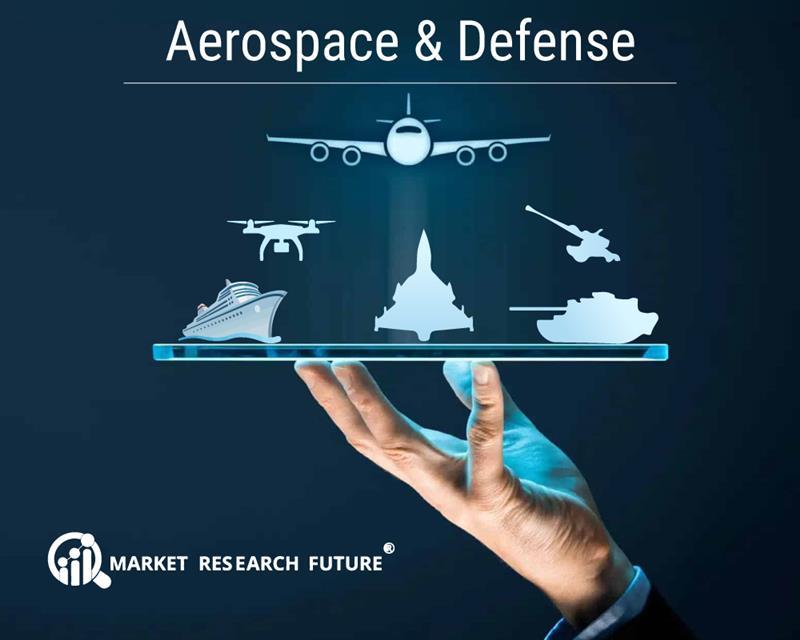Leadership and Executive Coaching: Building Sustainable Change Through Strategic Partnership

Organizational transformation demands more than inspirational speeches and weekend workshops. While training events spark initial enthusiasm and introduce powerful concepts, lasting change requires sustained support, expert guidance, and structured accountability. Leadership and executive coaching fills this critical gap, ensuring that organizations move beyond temporary motivation to embed new practices deeply into their culture. This comprehensive approach recognizes a fundamental truth: only 10% of transformational work happens during events, leaving 90% to the dedicated team members who need ongoing partnership to navigate challenges, maintain momentum, and achieve their vision for change.
The Gap Between Training Events and Real Transformation
Professional development events serve important purposes in organizational growth. Keynote speakers inspire renewed commitment to mission and values. Workshops introduce evidence-based strategies and practical tools. Training sessions build knowledge foundations that teams need to improve their practice. These experiences generate excitement and expand thinking about what's possible within organizations seeking to better serve their communities and stakeholders.
However, the pattern repeats itself across countless organizations. The day after an inspiring event, teams return to familiar routines and face the same pressures that existed before. Without structured follow-up, even the most transformative ideas fade into distant memories rather than becoming integrated practices. Leadership and executive coaching addresses this challenge by providing the sustained engagement necessary to translate learning into lasting organizational change that survives beyond initial enthusiasm.
The tendency to revert to status quo isn't a failure of commitment or intelligence. It reflects the reality that changing established patterns requires ongoing support, re-teaching concepts as they apply to specific situations, course correction when implementation veers off track, and accountability partners who help teams stay focused on their goals. Organizations that invest in coaching recognize these needs and commit to the heavy lifting required for genuine transformation.
Expert Consultation Services That Diagnose and Design Solutions
Organizations facing complex challenges benefit from time-limited consultation projects that bring expert analysis to their specific situations. Akoben.org provides consultation services designed to offer fresh perspectives and comprehensive assessment of organizational challenges, helping leadership teams understand their current reality and chart clear pathways toward their goals. These focused engagements analyze, diagnose, and prescribe solutions tailored to each organization's unique context and needs.
Restorative environment studies demonstrate consultation's power to create measurable baselines for improvement. When partnering with an urban middle school, consultants used the Restorative Practices Implementation Rubric to measure how deeply restorative principles had penetrated school culture. Dr. Malik Muhammad and other experts recognize that objective assessment reveals both strengths to celebrate and gaps requiring focused attention. The comprehensive report included independent observations and staff-based qualitative and quantitative data, providing the school with concrete information to inform their Annual School Improvement Plan, improve professional development opportunities, and advocate for additional district funding.
Trauma-informed care planning represents another critical consultation area where expert guidance ensures successful initiative development. Organizations committed to becoming trauma-informed need support identifying staffing patterns, assessing training needs, and ensuring alignment between trauma-informed principles and their core mission, vision, and values. Consultants collaborate with agency staff throughout the process, from initial planning through grant proposal development, ensuring initiatives have solid foundations and realistic implementation strategies.
Code of conduct overhaul projects showcase consultation's capacity to facilitate complex stakeholder engagement and collective decision-making. When a large school district sought to completely reimagine its approach to student discipline, consultants facilitated the entire process—partnering with district leadership, engaging community and external stakeholders including media representatives, managing workflow and assignments, and ensuring collective empowerment throughout. The final product reflected the district and community's evolving values, creating a stronger, more relevant, and restorative framework that aligned with where leadership and community members wanted to go.
Sustained Coaching That Transforms Learning Into Practice
While consultation diagnoses challenges and designs solutions, coaching ensures successful implementation over the long term. Iman Shabazz and other practitioners emphasize that coaching begins where training and consultation end, partnering with organizations to teach concepts in real-world contexts, problem-solve actual challenges as they arise, and maintain accountability throughout the implementation journey. This hands-on support bridges the gap between knowing what to do and successfully doing it consistently.
Coaching engagements guided by experts like Joshua Lee typically run six to twelve months, providing sufficient time for new practices to take root and become habitual rather than remaining surface-level additions. Rather than occasional check-ins or remote advice, coaching includes half or full days spent within the client's organization during typical operations. Understanding frameworks like the compass of shame—which explains how people respond to shame through withdrawal, avoidance, attacking self, or attacking others—helps coaches recognize emotional dynamics at play and adjust their support accordingly. All coaches bring deep expertise in their respective fields and serve as lead team members who understand both theoretical foundations and practical realities of organizational change.
Coaching sessions follow structured formats designed to maximize impact while remaining responsive to emerging needs. Pre-session preparation ensures coaches arrive with clear understanding of current priorities and challenges. Onsite brief launch meetings align expectations and focus attention on the day's most critical work. One-on-one conversations with core champion team members provide safe space for honest dialogue about struggles and successes, building the trusting relationships that sustain change efforts over time.
Live coaching with targeted staff members and teams brings learning directly into practice. Rather than discussing hypothetical scenarios in conference rooms, coaches work alongside team members during actual situations, modeling effective approaches and providing real-time feedback. Small-group coaching sessions address common challenges while building peer support networks that continue functioning after coaching ends. Debrief and strategy meetings with key leadership ensure that insights from coaching sessions inform ongoing planning, resource allocation, and decision-making at organizational levels.
Building Leadership Capacity for Long-Term Success
Effective coaching develops organizational capacity rather than creating dependency on external experts. Coaches teach team members to recognize patterns, apply frameworks independently, and support one another's continued growth. This approach ensures that once formal coaching engagements conclude, organizations possess the skills, structures, and confidence needed to continue their development journey without constant external support.
Organizations benefit most when they view coaching as true partnership rather than one-directional service delivery. Coaches bring expertise, outside perspective, and knowledge of what has worked in similar contexts. However, organizational members possess irreplaceable understanding of their specific culture, stakeholders, history, and constraints. The collaboration between external expertise and internal knowledge creates solutions that are both evidence-based and practically implementable within each organization's unique circumstances.
Successful coaching relationships require genuine commitment from leadership and openness from team members at all levels. Leaders must allocate time for coaching sessions, follow through on commitments made during strategy meetings, and publicly support the change process even when it feels uncomfortable or challenging. Team members need explicit permission to practice new approaches imperfectly, psychological safety to ask questions without judgment, and confidence that their efforts toward change are valued, supported, and recognized.
Creating Conditions for Sustainable Organizational Transformation
Coaching engagements include clear mechanisms for tracking progress and celebrating milestones throughout the transformation journey. Regular assessment helps identify what's working well and what needs adjustment, ensuring that energy and resources focus on highest-impact activities. Quantitative data on key metrics demonstrates concrete progress to stakeholders, while qualitative feedback captures the human experience of organizational change that numbers alone cannot convey.
Progress rarely follows a straight upward line. Organizations experience setbacks, encounter unexpected obstacles, and sometimes feel stuck despite their best efforts and intentions. Coaches help normalize these experiences as natural parts of change processes while providing specific strategies for working through difficulties. This support prevents discouragement from derailing change efforts and helps teams learn from challenges rather than viewing them as evidence of failure.
Celebrating successes, both large and small, maintains momentum throughout long-term change processes that can otherwise feel overwhelming. Coaches help organizations recognize progress that might go unnoticed in the midst of daily pressures, building confidence and reinforcing commitment to the journey. These celebrations remind everyone why the work matters and provide emotional fuel for continuing when the path forward feels difficult or uncertain.
Moving From Intention to Impact Through Strategic Partnership
Organizations ready to move beyond episodic training events toward sustained transformation benefit from strategic coaching partnerships that provide structure, accountability, and expert guidance. The journey begins with honest assessment of current realities and clear articulation of desired futures. Coaching then provides the ongoing support needed to bridge the gap between aspiration and achievement, helping organizations navigate the inevitable challenges that arise when implementing meaningful change.
Investing in leadership and executive coaching demonstrates organizational commitment to genuine transformation rather than superficial compliance with trends or mandates. It signals to team members that leadership values their professional growth and will provide the resources, time, and support needed for success. This investment builds trust and engagement throughout the organization, creating conditions where authentic transformation becomes possible rather than remaining an unrealized aspiration.
The most powerful outcomes emerge when organizations integrate coaching into broader strategic planning rather than treating it as separate from core work. Successful organizations recognize coaching as essential infrastructure for achieving their missions and serving their communities effectively. This integration ensures that learning, development, and continuous improvement receive the sustained attention and resources they deserve.
Leadership and executive coaching represents a commitment to excellence, continuous improvement, and the belief that organizations can become increasingly effective, equitable, and humane in their operations and impact. Through consultation that diagnoses challenges and coaching that supports implementation over time, organizations access the expertise and accountability needed to transform good intentions into measurable reality. The result is lasting change that serves everyone the organization touches—staff members who feel supported and empowered, communities that benefit from improved services, and leaders who successfully navigate the complex, challenging, and ultimately rewarding work of organizational transformation.








